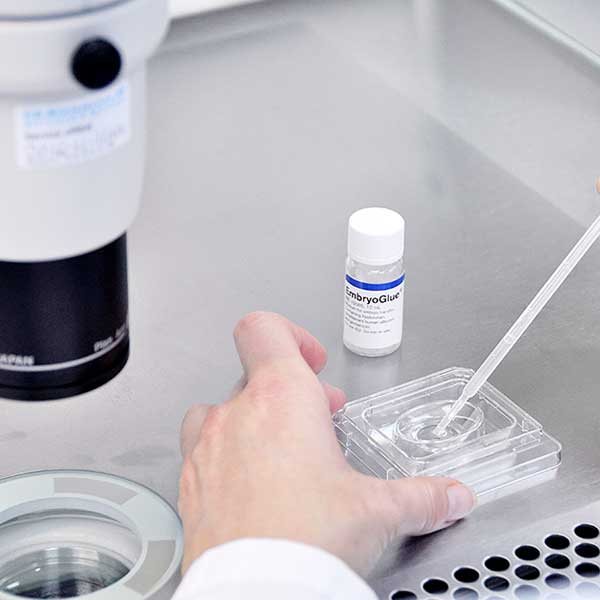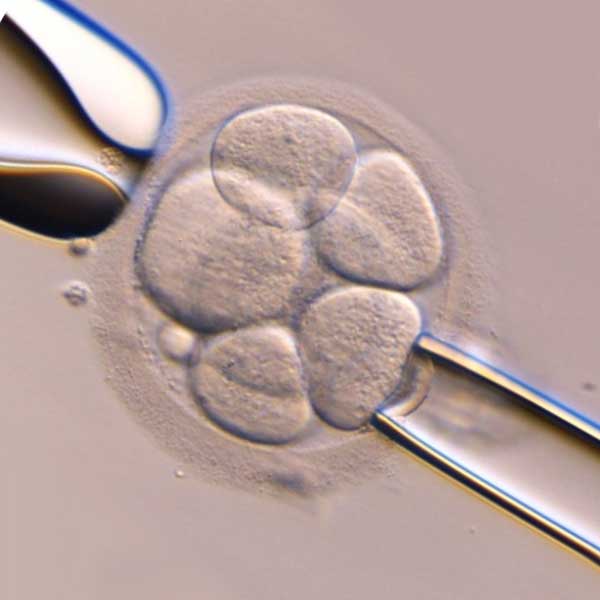Blastocyst transfer is the last step of an IVF cycle, in which the developing multi-celled embryo is transferred into the uterine cavity for implantation and growth. Normally the embryo transfer occurs on the 3rd or 5th day after fertilization. In cases when genetic screening is required the embryo may be transferred on the 6th or 7th day according to the genetic test results.
In an IVF treatment cycle, the eggs and sperms are mixed together in a specially designed medium with appropriate growth conditions or

are directly injected into the cytoplasm of an egg for fusion. The egg and sperm fertilize to develop an embryo. The embryo growth is evaluated on each day and is analyzed for proper cell division. Once the embryo enters a multi-celled stage, the best embryo is chosen and transferred into the uterine cavity for implantation and development.
Transferring an embryo in blastocyst stage improves the chances of implantation and conception. Each embryo in enclosed in protein layer known as the Zona pellucida. When an embryo reaches the blastocyst stage, this protein layer becomes thin and facilitates the easier break out of embryo from the outer protein case for implantation into the uterine cavity. Blastocyst transfer reduces the risk of miscarriages as they are rapidly multiplying and developing through the process.
Who all are suitable for a blastocyst transfer?
Blastocyst transfer is recommended for women who have experienced recurrent implantation failure. This can be due to several factors including the maternal age of the women, inappropriate environment inside the uterine cavity or due to failure of the embryo to break the shell and implant. Transferring an embryo at blastocyst stage helps the specialist to investigate numerous abnormal conditions that may lead to miscarriage, thus preventing the transfer of an imperfect embryo. Growing an embryo till blastocyst stage also aids in the selection of a single best and healthiest embryo for transfer thereby avoiding the risk of multiple pregnancies.
Advantages of a blastocyst transfer
- Selection of embryos: An embryo at blastocyst stage is structurally more advanced when compared to an embryo that is 3 days old, thereby increasing the chances for implantation and development in the uterine cavity. Women with high maternal age develop weak eggs that may stop developing before day 5 or 6 after fertilization. Extending the in vitro life of an embryo reduces the risk of miscarriages and thereby produces a successful IVF cycle.
- Optimal timing: The condition in the uterine cavity is more favorable for the growth of an embryo at blastocyst stage than a day 3 embryo thus encouraging the implantation process.
- Higher pregnancy: Blastocyst transfer increases the chances of a normal pregnancy.
- Frozen embryo transfer: If choosing a frozen embryo, thawing and growing the embryo till a blastocyst stage enables the selection of most viable frozen embryo for transfer.
- Only a few fertilized embryo: if only a few embryos are available from the IVF cycle, choosing the best embryo from the blastocyst stage reduces the risk of pregnancy failures.
At Rathimed Fertility Centre, we encompass a team of well- experienced and skilled fertility specialist combined with most advanced facilities to help patient conceive and help make their dream of having a family to reality. To know more about blastocyst transfer and other treatment modalities for a successful pregnancy, book an appointment now.




